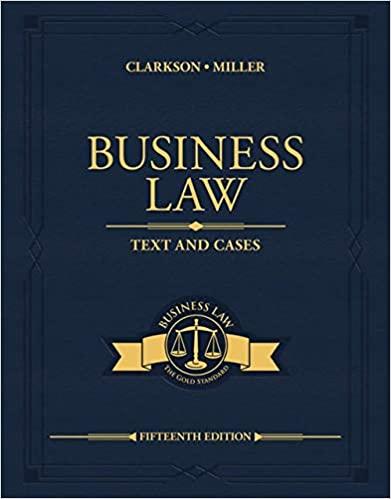Question
* I am looking for a tutor, who is: A: Good with Spelling, grammar and punctuation and shortening sentences. B: Familiar with Australian Industrial Relations
* I am looking for a tutor, who is:
A: Good with Spelling, grammar and punctuation and shortening sentences.
B: Familiar with Australian Industrial Relations laws
What I need help with is shortening this paragraph, to make it less wordy and shorter and still convey the original message, not to copy word-for-word but just to get some ideas and not use dot points.
My paragraph is below is bold and italics :
Low wages have impacted casual employees. During this current cost of living crisis, around half of all casual employees now regard their current financial situation, worse than it was in the previous year. Casual employees in Australia often work the same hours consistently, despite casual work being intended to be irregular. Many casuals have been in their jobs for over a year and work full-time hours. These arrangements are now called "permanent casuals," a term that contradicts itself. The government amended the Fair Work Act to allow employers to classify workers as "permanent casuals" and avoid paying them back-pay. This change in definition only considers the initial offer of employment, not what happens afterwards. This loophole allows employers to exploit workers by offering them casual contracts but giving them permanent hours. The "casual conversion" process, which should offer permanent employment after 12 months, has been ineffective, with very few casual employees being converted. Job insecurity is another issue, with many casuals struggling to secure enough hours of work. Underemployment has increased, particularly among part-time casuals who make up about 70% of all underemployed workers. During the pandemic, permanent full-time workers also faced hour reductions, but casuals were hit harder as many lost their jobs entirely. Part-time casuals are often used by businesses as a buffer against economic shifts, and they are the first to lose the hours they need when the labour market worsens. Casual employees in Australia often work the same hours consistently, despite casual work being intended to be irregular. Many casuals have been in their jobs for over a year and work full-time hours. These arrangements are now called "permanent casuals," a term that contradicts itself. The government amended the Fair Work Act to allow employers to classify workers as "permanent casuals" and avoid paying them backpay. This change in definition only considers the initial offer of employment, not what happens afterward. This loophole allows employers to exploit workers by offering them casual contracts but giving them permanent hours.Job insecurity is another issue, with many casuals struggling to secure enough hours of work. Underemployment has increased, particularly among part-time casuals who make up about 70% of all underemployed workers. During the pandemic, permanent full-time workers also faced hour reductions, but casuals were hit harder as many lost their jobs entirely. Part-time casuals are often used by businesses as a buffer against economic shifts, and they are the first to lose the hours they need when the labor market worsens. These issues of casual work and job insecurity highlight the challenges faced by many workers in Australia. The "permanent casual" classification allows employers to exploit workers and deny them fair pay, while underemployment leaves many casuals struggling to make ends meet. It is clear that the current system fails to provide adequate job security for casual employees. Reforms are needed to address these issues and ensure fair treatment and stability for all workers.
Step by Step Solution
There are 3 Steps involved in it
Step: 1

Get Instant Access to Expert-Tailored Solutions
See step-by-step solutions with expert insights and AI powered tools for academic success
Step: 2

Step: 3

Ace Your Homework with AI
Get the answers you need in no time with our AI-driven, step-by-step assistance
Get Started


